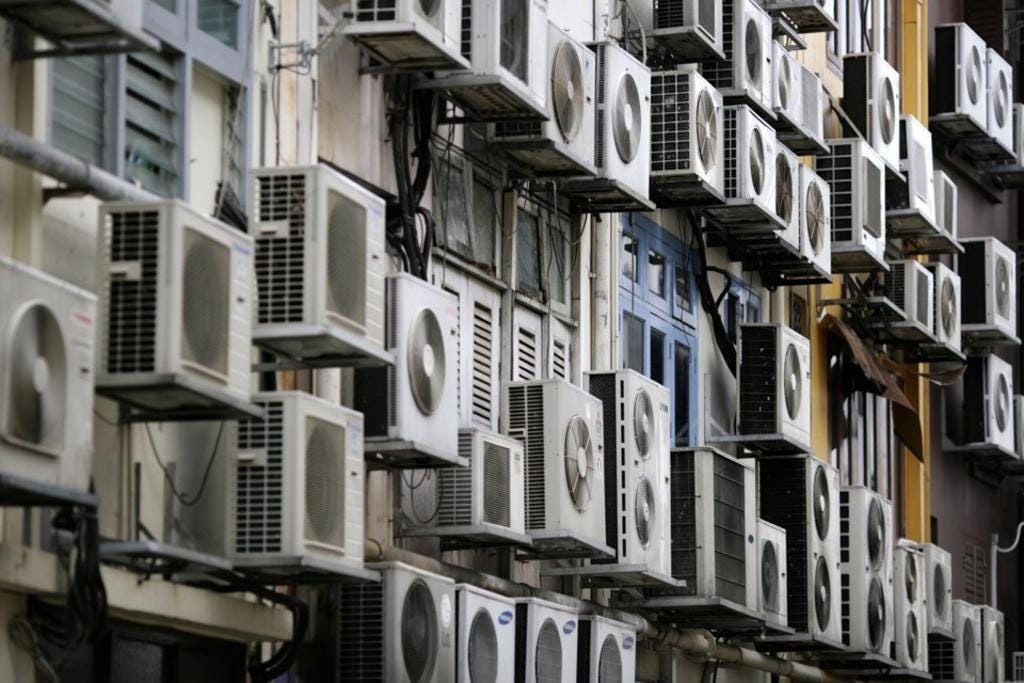The Lee Kuan Yew Hypothesis
Climate Control as a Prerequisite for Economic Development
Founder of the modern state of Singapore Lee Kuan Yew famously cited air conditioning as the single invention responsible for Singapore’s success.
If this at all sounds hyperbolic, you can dig up the archival footage of the 2009 interview he gave New Perspective’s Quarterly, in which he says as much: “[a]ir conditioning was a most important invention for us, perhaps one of the signal inventions of history. It changed the nature of civilization by making development possible in the tropics.” He goes on to explain that “[w]ithout air conditioning you can work only in the cool early-morning hours or at dusk. The first thing I did upon becoming prime minister was to install air conditioners in buildings where the civil service worked. This was key to public efficiency.”
Lately, the productivity value of being able to control one’s climate to make it suitable for work, knowledge work in particular, has not been lost on me, as I have been travelling and working remotely from Southeast Asia. Finding more comfortable, cooler places to work than my low-budget AirBnBs and transient hotel rooms has been a priority since day one.
In the morning I get up and depending on how I feel, I’ll either spend an hour or so getting some work done from my kitchen, or head straight out to the Starbucks near my place and set up there for a few hours. I’ve found the AC in the local Starbucks to be so much better than most places around, that the locals (mostly college students) who also work there bring hoodies and sometimes even blankets because of how cold it gets when you’re used to everything around you being 85-95°F. For the first few days I could only go about an hour before needing to step out to warm up. With jeans instead of shorts on I’ve been able to work my way up to 2-3 hour chunks. Regardless of how cool it is in there, at around 1pm, you start to feel the heat from outside coming off the windows. In mid-afternoon, from 2-4pm, it is the hottest part of the day, and usually by then I’ve chilled myself in the coffee shop for long enough, and head out to get some errands done, grab lunch, or just back to my apartment for a mid-day siesta. In the evenings I have meetings with people in U.S. timezones, so I’m always working late and a few hours off in the afternoon (maybe getting some sun and steel) is just part of my schedule. But enough about me. This is not a travel blog, and while I’ll be inserting snippets of insights from my experiences into some of these posts, that is not what you’re all here for. I bring this up only to illustrate the point that climate control (or lack-thereof) influences productivity in important ways; potentially shaping one’s entire day.
While Lee Kuan Yew’s attributions to air conditioning have been remarked on before, it is fitting that they be revisited here because the factors of biology, technology, statecraft, and “hacks” for all of the above is what Hacking State is about. If we take someone as successful as LKY at statecraft seriously when he says the invention of air conditioning created the green light for advanced development in the tropics, then every politician, party, and government leader concerned with the prosperity of a sunny hot region should be making ubiquitous air conditioning a national priority.
It is easy enough in most developing nations to find adequate air conditioned facilities for living and working in metropolitan areas, if you can pay. But something like buildings which have central air as part of their design and planning, as is nearly standard in warm parts of the United States, is still rare in many places. I don’t know wether this is primarily due to lack of space, cost, both, or something else, but I have found that in places where it is essential to get anything done during most of the day, there are still highly developed areas (like the one I’m staying in) where each unit, wether a restaurant, hotel, or coffee shop, is responsible for purchasing and maintaining within it its own large air conditioner, which is separate from the building itself. Beyond being a huge cost on local businesses, this is a poor use of space, and vastly less efficient than if units located in the same building benefitted from, and all pooled to pay for, centralized air conditioning.
Note: It may be because of the lack of a need for heating infrastructure in these places that they aren’t built this way. HVAC guys, lmk if this is the case.
Beyond my personal campaign for national air conditioning, and climate control as a top nationalist priority in tropical regions, there is a deeper conceptual point to be grasped form Lee Kuan Yew’s perspective. At bottom, any technological innovation which gives humans vastly greater ability to manipulate their environment, especially if such an innovation interfaces with underlying biology in a productive, protective, or beneficial way, gives its possessors a huge leg-up compared to places or states that have yet to discover, implement, or fully utilize such a technology. Whether it is fire, sanitary indoor plumbing, antibiotics, or air conditioning — each of these technologies vastly improved human outcomes, standards of living, productivity, and ultimately, the ability to outcompete societies and people without such innovations. Anyone looking to found, revolutionize, or improve a polity of any kind must take such innovations seriously when they are spotted, and do their best to deploy them to their advantage.



Tangentially related, but you might be interested to know that Steve Cohen, billionaire Greenwich financier, insists on nearly noiseless air conditioners and computers in the office, with telephones blinking instead of ringing as well. Always thought this was very sensible.